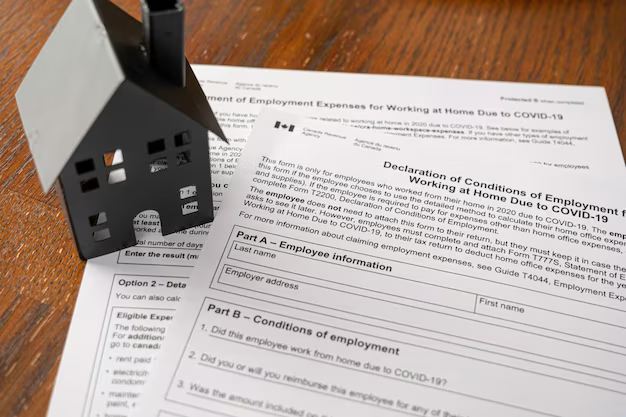Decoding Property Taxes in California: Your Step-by-Step Guide
🏡 Imagine purchasing your dream home in California—a state known for its beautiful landscapes and bustling cities. While owning property here is exciting, understanding the intricacies of property taxes might feel daunting. Whether you're a first-time homebuyer or a seasoned property owner, mastering California's property tax system is essential for budgeting and financial planning. Let's dive into how to determine property tax in California, breaking down every component so you can make informed decisions with confidence.
Understanding the Basics of Property Tax in California
In California, property taxes are an essential source of revenue for local governments, funding public services like schools, road maintenance, and emergency services. Here's an overview of the fundamental components:
Ad Valorem Tax System
California uses an ad valorem tax system, meaning taxes are based on the assessed value of the property. This valuation is determined annually by the county assessor's office.
Proposition 13 and Its Impact
Proposition 13 was introduced in 1978 to limit the annual growth of property taxes. It caps the general property tax rate at 1% of the property's assessed value, plus any voter-approved local taxes and assessments. The assessed value can only increase by a maximum of 2% annually unless there's a change in ownership or new construction.
Calculating Property Tax: Step by Step
Determining your property tax bill requires knowing the assessed value and the applicable tax rate, including additional taxes like bonds and special assessments.
Step 1: Determining the Assessed Value
- Initial Purchase: The assessed value is typically equal to the purchase price of the property.
- Annual Increase: Due to Proposition 13, the assessed value can increase by up to 2% annually.
- Reassessment Events: Reassessments occur when the property is sold or when significant improvements are made.
Step 2: Identifying the Tax Rate
The base tax rate is 1% as capped by Proposition 13. However, additional local taxes may apply, including:
- School Bonds: Taxes to fund local school construction and maintenance.
- Special Assessments: Fees for specific local services or improvements.
Step 3: Calculating the Total Property Tax
Once you have the assessed value and tax rate, calculating the total tax is straightforward:
Total Property Tax = Assessed Value x (1% base rate + additional rates)
Special Cases and Considerations
Certain circumstances and propositions can impact how property taxes are assessed and calculated.
Proposition 58 and 193: Parent-Child and Grandparent-Grandchild Exclusion
These propositions allow the transfer of a property between parents and children, or grandparents and grandchildren, without reassessment, maintaining the original tax base.
Proposition 60 and 90: Senior Citizens Replacement Dwelling Benefit
Seniors over 55 can transfer the taxable value of their existing home to a new residence of equal or lesser value in some counties, avoiding reassessment and maintaining a lower tax base.
Building a New Structure
New constructions or significant improvements will trigger a reassessment of the property, which could increase the assessed value and thus the property tax.
FAQs About California Property Tax
Let's address some common queries that often arise regarding property taxes in California.
What Happens with a Change of Ownership?
A change of ownership will typically reset the assessed value to the market value of the property at the time of sale. This can significantly affect the amount of property tax owed.
How Does Property Tax Assessment Work?
County assessors appraise property values annually, considering factors like market trends and comparable sales within the area. Homeowners can dispute assessments if they believe the valuation is incorrect.
Are There Any Property Tax Relief Programs?
Yes, California offers several relief programs, such as:
- Homeowners’ Exemption: Reduces the taxable value of a primary residence by $7,000.
- Disabled Veterans’ Exemption: Provides a reduction in assessed value for eligible disabled veterans or their surviving spouses.
Practical Tips for Property Tax Management
Stay ahead of the curve with these strategies to manage and potentially reduce your property taxes:
- Understand Local Tax Rates: Be aware of local special assessments that might impact your total tax bill.
- Check for Exemptions: Investigate eligibility for exemptions like the homeowners’ or veterans’ exemptions.
- Monitor Reassessments: Keep track of changes in property value and ensure they align with market conditions.
- Consider Appeals: If you believe your property's assessed value is too high, consider appealing the assessment.
🌟 Quick Tips for Navigating Property Taxes in California:
- 🏠 Be Proactive: Regularly monitor your property's assessed value and compare it with similar properties.
- 📋 Stay Informed: Understand changes in local tax laws, as they can influence your tax bill.
- 💼 Consult Professionals: Seek advice from real estate or tax professionals to help navigate complex scenarios.
Making Informed Property Decisions
Understanding property taxes is vital for any homeowner in California. By grasping the foundational elements, assessing your specific situation, and knowing available options for relief, you'll be well-equipped to make informed decisions about your property and its financial obligations. Whether buying a new home, transferring ownership, or simply managing your yearly bills, a clear understanding of property taxes empowers you to maximize savings and stay financially savvy.
California's property tax system, with its nuances and exemptions, can seem like a maze at first glance. However, with the right information and approach, you can navigate it successfully, ensuring that owning property remains a rewarding experience in this dynamic state.

Related Topics
- Are Property Taxes Tax Deductible
- Can I Get a Property Tax Refund
- Can I Pay Property Tax Online
- Can I Pay Property Tax With Credit Card
- Can Property Tax And Condo Fee Be Deducted In Maryland
- Can You Claim Property Taxes On Your Income Tax
- Can You Claim Property Taxes On Your Tax Return
- Can You Claim Your Property Taxes On Your Income Tax
- Can You Pay Property Tax Monthly
- Can You Totally Not Pay Property Tax Texas
